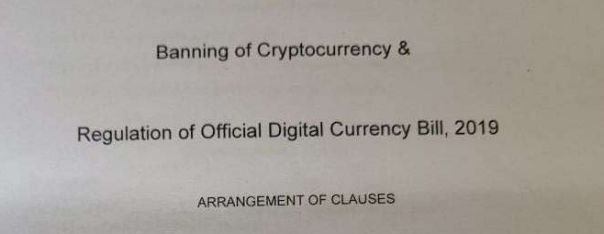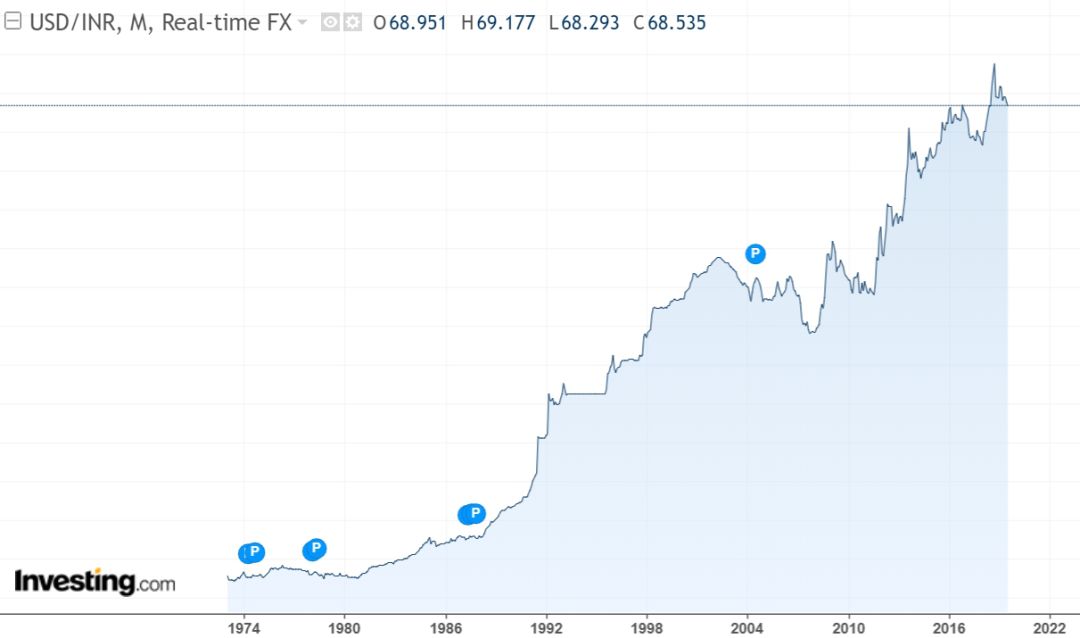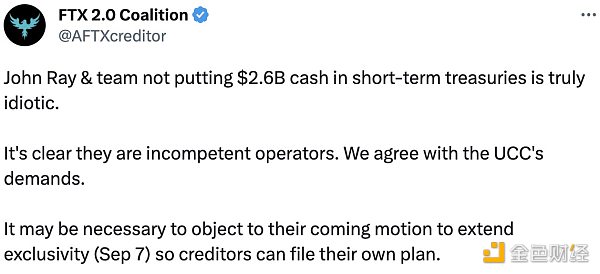Completely blocked! The most stringent bill in the history of India reveals that the "digital rupee" is emerging
Today, according to information shared by lawyer Varun Sethi, the draft of India's ban on the use of cryptocurrencies has been made public.

After a year, the bill, known as "the most stringent in history", was finally made public. Before that, there was a saying that India was about to usher in a revamp of "94". However, according to the newly published draft, the reporter found that In the previous "94" across the board, India wants to ban more than just ICO, but a complete ban on cryptocurrency.
5 key points prohibiting cryptocurrency
According to the draft, the Act was named "The 2019 Prohibition of Cryptographic and Official Digital Currency Acts." It extends throughout India. This Law shall come into force on the date specified in the notice of the Central Government of India. However, the implementation time is still unclear.
- Popular Science | Bandwidth and Blockchain: How Developers Minimize Overhead
- Trump slams Bitcoin and Libra; the US Congress intends to ban technology giants from digital assets
- "No brain black" or "Frenzy powder"? Check the national politicians who are talking about cryptocurrency and blockchain
The ban on cryptocurrency, in addition to the strict " anyone can not mine, produce, hold, sell, trade, distribute, transfer, dispose or use cryptocurrency in India ", the main rules have the following five points :
1. No one may use cryptocurrency directly or indirectly in any way, including as an exchange medium, value store or account unit.
2. The cryptocurrency shall not be used as legal tender or currency anywhere in India. It is prohibited to use cryptocurrency in certain activities.
3. According to the Payment and Settlement System Act of 2007, no one may use cryptocurrencies directly or indirectly for activities. Including: as a payment system, buying or selling cryptocurrency, providing cryptocurrency related services to consumers or investors, including registration, trading, settlement and other services.
4. No one may issue financial products related to cryptocurrency.
5. No one may issue cryptocurrency as a means of raising funds or means of investment.
It can be seen that from the miners to the encrypted users, from the ICO to the enterprise, and then from the exchange to the cryptocurrency derivative field, the above five bans have already covered all aspects of the cryptocurrency industry, which can be described as a complete ban.
Once the above ban is touched, it will be considered a criminal act and will face more severe penalties.
According to the draft, different penalties are mainly based on behavior and purpose.
For those who directly or indirectly mine, generate, hold, sell, trade, transfer, dispose or issue cryptocurrency or any combination thereof, the case may be fined or imprisoned by the central government for a period of not less than one year, but may be Extended to ten years. For criminal acts with more serious violations, they will be sentenced to more than ten years in prison.
In addition, anyone directly or indirectly promotes, publishes, advertises, or induces others to participate in any activity involving the use of cryptocurrencies. The longest will face imprisonment for up to seven or seven years.
The court will consider the following factors when deciding on the appropriate sentence and fine for the crime.
1. The responsibility of the person charged with the crime
2. Actual and expected income and losses
3. Damage to the financial system
4, mitigating factors
5. The repeat nature of the crime
In terms of fines, the maximum amount of fines an individual faces is three times the loss or damage caused by the person or three times the personal income.
Awkward Indian Rupee and the disclosed "digital rupee"
It is worth mentioning that there are two cases that do not apply to the bill:
1. Any person who uses techniques or processes based on any cryptocurrency in an experiment or research, including the instruction to a student, but which does not use cryptocurrency in the activity should be used for payment or acceptance of payment, does not apply to this law.
2. The use of distributed ledgering techniques to create a network for the delivery of any financial or other service or value creation without involving the use of cryptocurrency to pay or receive payments, does not apply to any provision of this Law.
It can be seen that in the face of cryptocurrency, the Indian government can be said to be strictly prohibited. At the same time, however, India’s technology and ledger technology for cryptocurrency is not exclusive , and this may be related to its “digital rupee” .
Unlike other countries' easing policies, India can be said to be extremely damaging to cryptocurrencies. But at the same time, India is also facing the problem of continued inflation in its domestic currency.
The data shows that since the establishment of the Republic of India on January 26, 1950, after 69 years of development, the inr against the US dollar has also depreciated to 1:69. For the time being, serious inflation in domestic currency has become an urgent issue for India.

In the face of this situation, according to the draft, India is still raising the legal “digital rupee” of the country while suppressing the digital currency.
According to the draft, “digital rupee” refers to the form of currency issued by the Reserve Bank in a digital manner and approved by the central government as legal tender.
The draft further states that, in consultation with the Central Reserve Bank of India, the Indian Central Government may approve the digital rupee as the legal tender, which is also effective from the date specified and is effective within the prescribed scope.
The "digital rupee" shall be governed by the provisions of the Reserve Bank of India may be notified under the relevant provisions of the Indian Reserve Bank Act of 1934 (Act No. 2 of 1934).
In addition to the “digital rupee”, the Reserve Bank of India may also declare, within the scope specified in the notice, that any official foreign digital currency is recognized as a foreign currency in India.
The foreign digital currency recognized as "foreign currency" by India shall be subject to the relevant provisions of the Reserve Bank of China's Foreign Exchange Control Act of 1999 (Act No. 42 of 1999).
In general, the most stringent encryption regulation in history is not completely abandoning cryptocurrency as people thought before. On the contrary, from the content of the draft, India’s attitude is not just as simple as blocking. .
In the long run, India still hopes to improve the long-standing problem of domestic currency inflation through the “digital rupee”. After that, India will also properly integrate with the international community and recognize some “foreign currencies”.
But for now, India still has to collect power first and then decentralize it.
Click to read the original text
Original: Sharing Finance Neo
We will continue to update Blocking; if you have any questions or suggestions, please contact us!
Was this article helpful?
93 out of 132 found this helpful
Related articles
- Blockchain Weekly | US SEC issues Trump to question cryptocurrency through two compliant tokens
- Read the question that Libra, Facebook will face, will face problems at the US FSC hearing on Wednesday.
- Is the power of the mine pool too big? Bitcoin should probably use the BetterHash protocol.
- Despising Bitcoin and gold, where is Buffett wrong?
- Bitcoin is halving, is it a chance to make a fortune, or a disaster
- Libra Senate and the House hearings preview: the situation in the Senate is acceptable, the House of Representatives is more dangerous
- Suning Financial Research Institute: Libra Ruocheng, Bitcoin will be extinguished






